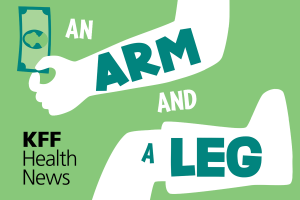Natural Rivals to Ozempic? | Childhood Obesity News

First off, the title is misleading, because the subject matter also applies to the other GLP-1 RA drugs, not just to the grand-daddy of the genre. Ozempic was originally okayed to treat type 2 diabetes, and went on to demonstrate its unsuspected usefulness as weight-loss medicine. To avoid a lot of unnecessary verbiage, this brand name will stand in for similar brands because in the mass mind, it already does.
Only the body makes GLP-1 peptide hormone, which triggers insulin production. But sometimes another substance can fill the same function as a natural chemical, in which case it is called a Receptor Agonist. It has that ability to hit a receptor the same way and fill the same function as the natural chemical, which in this case is to trigger insulin production. Semaglutide does that and is called a GLP-1 RA drug for short. When Ozempic or another brand is administered, it plugs into receptors in the stomach, brain, and pancreas.
Some caveats
Before this whole weight loss shot fad got started, quite a lot about semaglutide was already known because of its successful use in diabetes, and much more has been learned recently. An important factor for patients is that a lot of folks don’t like to give themselves injections; and when it comes to children and teens, some adults are nervous about encouraging minors to become so comfortable around needles.
Patient compliance is never an exact science, and it is not such a great idea for even grownups to become casual or smug about self-treatment. Some people doubtless expend more intellectual energy figuring out how to safely take a self-indulgent holiday break from their Ozempic than they did in acquiring a college education.
Even if injections can eventually be escaped, massive costs and potential side effects — both in the present and in the future — must be dealt with. Nobody knows what kind of shape these patients will be in 20 years from now. The rapidity with which lean muscle mass can dissolve from the body is only one troubling aspect. It is all too easy to envision a scenario in which the experts of 2050 look back, shake their heads and mutter “How did they miss this?”
Speaking of costs, in the present-day market for Ozempic and its peers, a lot of counterfeiting goes on. People are shelling out enormous sums for bogus products that could contain — well, anything. They also willingly pay for “companions for weight-loss drugs” which are said to counteract the unwanted effects of the GLP-1 agonists.
These supplements are meant to prevent, among other things, the loss of lean muscle mass by providing or facilitating the body’s ability to absorb the minerals and other nutrients it must have in order to keep the patient healthy. It was discovered that, sadly, a person might also need another kind of supplement, something for the old mental health, because Ozempic seemed to have unbalanced it in certain people.
But then, the wind changed, and…
Interestingly, it was widely reported last January that health agencies in the U.S. and Europe have conducted thorough reviews and found no evidence linking thoughts of suicide or self-harm to semaglutide.
On the other hand, the public has been warned off by such luminaries as Sharon Osbourne, who told an interviewer, “There is no quick weight loss recipe for what is basically a mental problem.”
Your responses and feedback are welcome!
Image by Madras 91/Attribution 2.0 Generic








